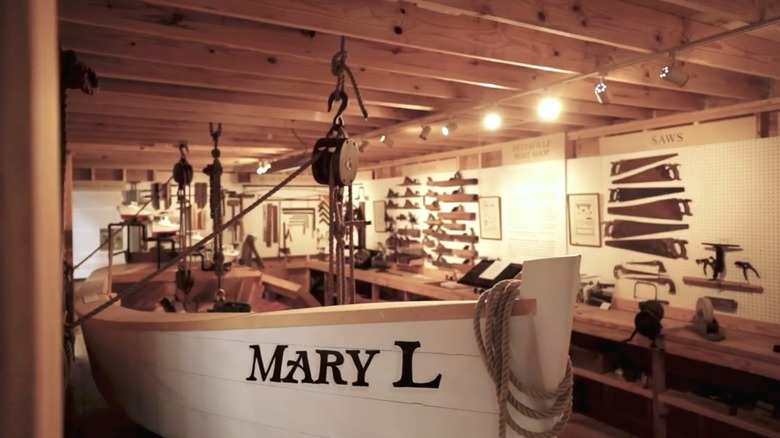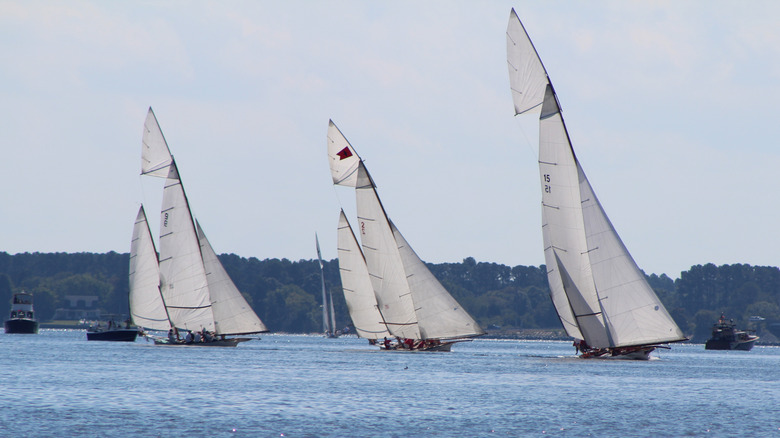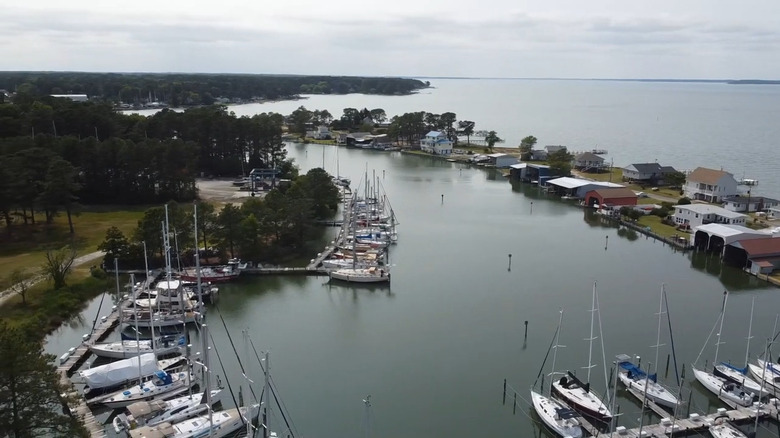The 'Boating Capital Of Chesapeake Bay' Is A Small Virginia Community With Fresh Seafood And Scenic Bay Views
The Lower Chesapeake Bay is a wide expanse of water waiting to be explored. From one of the nation's earliest settlements in Jamestown, English Captain John Smith toured the large estuary, mapping its many winding rivers and creeks. Legend has it that he was stung by a stingray and nearly died in a location now shown on the charts as Stingray Point. A few miles away, local tribes helped him recover, near what the charts call Antipoison Creek.
Obviously, boating history runs deeply in this part of the world. Near Stingray Point is a small community developed over the years, specializing in building boats from the plentiful lumber provided by the dense woodlands. Its position at the end of a narrow triangular peninsula, with the Rappahannock River to the north and the Piankatank River to the south, led to its name: Deltaville.
Today, the community holds onto its boatbuilding heritage, with locals often pointing out that there are more boats than people in this town and that it's the "boating capital of Chesapeake Bay." But, like many serene Chesapeake Bay escapes in Virginia (full of natural beauty and excellent seafood), it's also a peaceful spot where beautiful rivers meet the bay, where anyone can enjoy a moment of quiet on the water, and where you will feel like the modern world is a very long way away.
Deltaville, the town with more boats than people
Deltaville's historic reputation comes from the wooden workboats that were built here. If you look closely, you'll still see these traditional skills at play in the boatyards, even though most vessels are now made of modern materials. In fact, if you've got a boat that needs work done, there are few areas with more options. Despite its diminutive size, Deltaville has more than a dozen marinas and boatyards.
With that kind of industry, it's no wonder that folks here spend their days working and playing on the bay. Some head out on paddleboards or kayaks, while others opt for jet skis, and still others just want to drop a few lines to see what's biting. Sailors hoist canvas and participate in races or head off to distant horizons — you'll see boats from all over the world here. It's an excellent base for exploring other Chesapeake spots, such as the artsy town of Onancock or nearby Gwynns Island. There are several fishing and sailing charters in the area that can get you out on the water, or you could rent kayaks at the Jackson Creek Outfitters. Whatever your vessel, Deltaville makes the perfect place to get out and enjoy the water.
Be sure to stop by the Deltaville Maritime Museum at Holly Point Nature Park, where their collection includes a historic log-bottom buyboat and a recreation of the shallop John Smith sailed while mapping the bay back in 1607. The surrounding park has sculpture gardens, hosts a monthly summer concert series, and a path leads you to the waterfront Deltaville Tap and Raw Bar. If you're after a great meal, you'll want to check out The Table. It lacks the view, but the food is top-rated with 4.7 stars on Tripadvisor.
Staying and making a splash in Deltaville
If you're driving to Deltaville, you'll quickly discover why the place is so popular with boaters — it's not near anything but the water. Richmond, home of trendy neighborhoods full of culture and creativity, is the nearest major city with an airport. It's about an hour and a half away by car. Richmond's airport has approximately 150 daily flights from all over the country.
Unless you happen to be visiting on a cruising boat, there aren't a lot of accommodation options in Deltaville. The Dockside Inn is a small independent hotel tucked between boatyards and marinas. If you're looking for something with more space or perhaps even bay views, consider renting a property on Airbnb or VRBO.
Deltaville is best visited during the spring or fall. Boating season runs from early May through the end of November, but hardy boaters can be found out on the bay year-round. Things are quiet and cold in the off season, but the middle of summer is a time you might want to avoid, as well. July and August, in particular, can be hot and muggy, with average temperatures near 90 degrees Fahrenheit and stifling levels of humidity.


